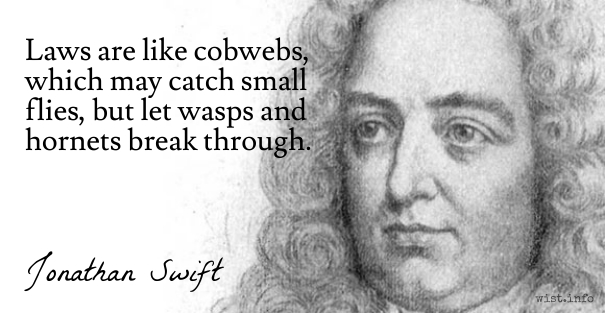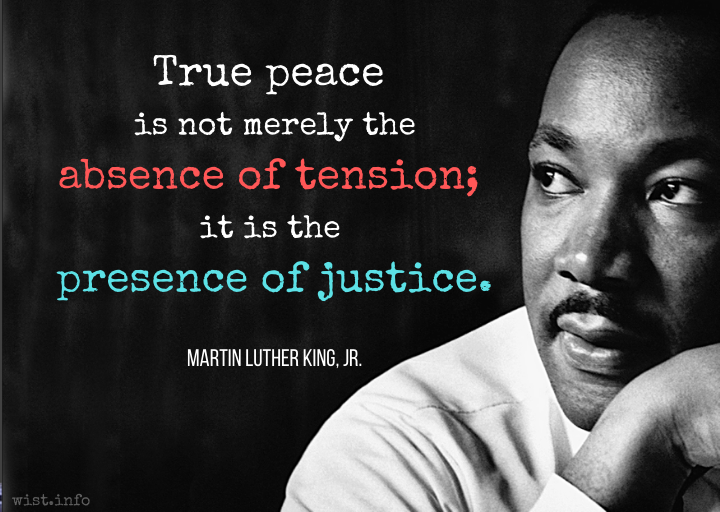I hate, I despise your festivals, and I take no delight in your solemn assemblies. Even though you offer me your burnt offerings and grain offerings, I will not accept them, and the offerings of well-being of your fatted animals I will not look upon. Take away from me the noise of your songs; I will not listen to the melody of your harps. But let justice roll down like water and righteousness like an ever-flowing stream.
The Bible (The Old Testament) (14th - 2nd C BC) Judeo-Christian sacred scripture [Tanakh, Hebrew Bible], incl. the Apocrypha (Deuterocanonicals)
Amos 5:21-24 [NRSV (1989 ed.)]
(Source)
Alternate translations:
I hate, I despise your feast days, and I will not smell in your solemn assemblies. Though ye offer me burnt offerings and your meat offerings, I will not accept them: neither will I regard the peace offerings of your fat beasts. Take thou away from me the noise of thy songs; for I will not hear the melody of thy viols. 24 But let judgment run down as waters, and righteousness as a mighty stream.
[KJV (1611)]
I hate and despise your feasts, I take no pleasure in your solemn festivals. When you offer me holocausts, I reject your oblations, and refuse to look at your sacrifices of fattened cattle. Let me have no more of the din of your chanting, no more of your strumming on harps. But let justice flow like water, and integrity like an unfailing stream.
[JB (1966)]
The Lord says, “I hate your religious festivals; I cannot stand them! When you bring me burnt offerings and grain offerings, I will not accept them; I will not accept the animals you have fattened to bring me as offerings. Stop your noisy songs; I do not want to listen to your harps. Instead, let justice flow like a stream, and righteousness like a river that never goes dry."
[GNT (1976)]
I loathe, I spurn your festivals,
I am not appeased by your solemn assemblies.
If you offer Me burnt offerings -- or your grain offerings --
I will not accept them;
I will pay no heed
To your gifts of fatlings.
Spare Me the sound of your hymns,
And let Me not hear the music of your lutes.
But let justice well up like water,
Righteousness like an unfailing stream.
[RJPS (2006)]
I hate, I despise your religious festivals; your assemblies are a stench to me. Even though you bring me burnt offerings and grain offerings, I will not accept them. Though you bring choice fellowship offerings, I will have no regard for them. Away with the noise of your songs! I will not listen to the music of your harps. But let justice roll on like a river, righteousness like a never-failing stream!
[NIV (2011 ed.)]
Quotations about:
justice
Note not all quotations have been tagged, so Search may find additional quotes on this topic.
There are none more abusive to others than they that lie most open to it themselves; but the humor goes round, and he that laughs at me today will have somebody to laugh at him tomorrow.
The trouble ain’t that there is too many fools, but that the lightning ain’t distributed right.
Mark Twain (1835-1910) American writer [pseud. of Samuel Clemens]
(Attributed)
(Source)
Found in Merle Johnson, More Maxims of Mark (1927), and generally considered authentic.
HENRY: What stronger breastplate than a heart untainted?
Thrice is he armed that hath his quarrel just,
And he but naked, though locked up in steel,
Whose conscience with injustice is corrupted.
Bad men, like good men, are entitled to be tried and sentenced in accordance with law, and when it is shown to us that a person is serving an illegal sentence our obligation is to direct that proper steps be taken to correct the wrong done, without regard to the character of a particular defendant or to the possible effect on others who might also want to challenge the legality of their sentences as they have the right to do “at any time” under Rule 35. If it has any relevance at all, the fact that there may be other prisoners in this country’s jails serving illegal sentences would seem to me to make it all the more imperative that we grant appropriate relief in this case rather than search for some obviously dubious excuse to deny this petitioner’s claim.
Hugo Black (1886-1971) American politician and jurist, US Supreme Court Justice (1937-71)
Green v. United States, 365 U.S. 301, 309-310 (1961) [dissent]
(Source)
On the one hand we are called to play the good Samaritan on life’s roadside; but that will be only an initial act. One day the whole Jericho road must be transformed so that men and women will not be beaten and robbed as they make their journey through life. True compassion is more than flinging a coin to a beggar; it is not haphazard and superficial. It comes to see an edifice which produces beggars needs restructuring.
Martin Luther King, Jr. (1929-1968) American clergyman, civil rights leader, social activist, preacher
“A Time to Break Silence,” speech, Clergy and Laity Concerned meeting, Riverside Church, New York City (4 Apr 1967)
(Source)
This address was reworked the following year into his book, Where Do We Go From Here: Chaos or Community?, ch. 6, "The World House," sec. 3 (1968), in a slightly altered form:
We are called to play the good Samaritan on life's roadside; but that will be only an initial act. One day the whole Jericho road must be transformed so that men and women will not be beaten and robbed as they make their journey through life. True compassion is more than flinging a coin to a beggar; it understands that an edifice which produces beggars needs restructuring.
What is needed is a realization that power without love is reckless and abusive and that love without power is sentimental and anemic. Power at its best is love implementing the demands of justice. Justice at its best is power correcting everything that stands against love.
Martin Luther King, Jr. (1929-1968) American clergyman, civil rights leader, social activist, preacher
Where Do We Go from Here: Chaos or Community? ch. 2 “Black Power” (1967)
(Source)
When we went to school we were told that we were governed by laws, not men. As a result of that, many people think there is no need to pay any attention to judicial candidates because judges merely apply the law by some mathematical formula and a good judge and a bad judge all apply the same kind of law. The fact is that the most important part of a judge’s work is the exercise of judgment and that the law in a court is never better than the common sense judgment of the judge that is presiding.
Robert H. Jackson (1892-1954) US Supreme Court Justice (1941-54), lawyer, jurist, politician
Speech, Greater Buffalo Advertising Club, New York (1933)
(Source)
Quoted in Eugene Gerhart, America's Advocate: Robert H. Jackson, ch. 4 (1958).
Live a good life. If there are gods and they are just, then they will not care how devout you have been, but will welcome you based on the virtues you have lived by. If there are gods, but unjust, then you should not want to worship them. If there are no gods, then you will be gone, but will have lived a noble life that will live on in the memories of your loved ones.
Marcus Aurelius (AD 121-180) Roman emperor (161-180), Stoic philosopher
(Spurious)
Widely attributed to Marcus Aurelius, but no actual citation found, and with some discrepancies to his philosophy. The closest match appears to be Meditations 2.11, but it is a very poor match.
More information:
You know my friends, there comes a time when people get tired of being trampled by the iron feet of oppression. […] We are not wrong, we are not wrong in what we are doing. If we are wrong, the Supreme Court of this nation is wrong. If we are wrong, the Constitution of the United States is wrong. And if we are wrong, God Almighty is wrong. If we are wrong, Jesus of Nazareth was merely a utopian dreamer that never came down to Earth. If we are wrong, justice is a lie, love has no meaning. And we are determined here in Montgomery to work and fight until “justice runs down like water, and righteousness like a mighty stream.”
Civil liberties had their origin and must find their ultimate guaranty in the faith of the people. If that faith should be lost, five or nine men in Washington could not long supply its want.
Robert H. Jackson (1892-1954) US Supreme Court Justice (1941-54), lawyer, jurist, politician
Douglas v. Jeannette 319 U.S. 157, 181 (1943) [concurring]
(Source)
The most odious of all oppressions are those which mask as justice.
Robert H. Jackson (1892-1954) US Supreme Court Justice (1941-54), lawyer, jurist, politician
Krulewitch v. United States, 336 U.S. 440, 458 (1949) [concurring]
(Source)
Thus says the Lord of hosts: Render true judgements, show kindness and mercy to one another; do not oppress the widow, the orphan, the alien, or the poor; and do not devise evil in your hearts against one another.
But they refused to listen, and turned a stubborn shoulder, and stopped their ears in order not to hear. They made their hearts adamant in order not to hear the law and the words that the Lord of hosts had sent by his spirit through the former prophets. Therefore great wrath came from the Lord of hosts.
The Bible (The Old Testament) (14th - 2nd C BC) Judeo-Christian sacred scripture [Tanakh, Hebrew Bible], incl. the Apocrypha (Deuterocanonicals)
Zechariah 7:9-12 [NSRV]
(Source)
Alt. trans.: "Thus speaketh the Lord of hosts, saying, Execute true judgment, and shew mercy and compassions every man to his brother: And oppress not the widow, nor the fatherless, the stranger, nor the poor; and let none of you imagine evil against his brother in your heart." [KJV]
PORTIA: The quality of mercy is not strained.
It droppeth as the gentle rain from heaven
Upon the place beneath. It is twice blest:
It blesseth him that gives and him that takes.
’Tis mightiest in the mightiest; it becomes
The thronèd monarch better than his crown.
His scepter shows the force of temporal power,
The attribute to awe and majesty
Wherein doth sit the dread and fear of kings;
But mercy is above this sceptered sway.
It is enthronèd in the hearts of kings;
It is an attribute to God Himself;
And earthly power doth then show likest God’s
When mercy seasons justice.William Shakespeare (1564-1616) English dramatist and poet
Merchant of Venice, Act 4, sc. 1, l. 190ff (4.1.190-203) (1597)
(Source)
Deserves death! I daresay he does. Many that live deserve death. And some die that deserve life. Can you give that to them? Then be not too eager to deal out death in the name of justice, fearing for your own safety. Even the wise cannot see all ends.
J.R.R. Tolkien (1892-1973) English writer, fabulist, philologist, academic [John Ronald Reuel Tolkien]
The Lord of the Rings, Vol. 2: The Two Towers, Book 4, ch. 1 “The Taming of Sméagol” (1954)
(Source)
Frodo recalling the words of Gandalf (approximately) in The Fellowship of the Ring.
It is more important that innocence be protected than it is that guilt be punished, for guilt and crimes are so frequent in this world that they cannot all be punished. But if innocence itself is brought to the bar and condemned, perhaps to die, then the citizen will say, “whether I do good or whether I do evil is immaterial, for innocence itself is no protection,” and if such an idea as that were to take hold in the mind of the citizen that would be the end of security whatsoever.
John Adams (1735-1826) American lawyer, Founding Father, statesman, US President (1797-1801)
(Attributed)
Cited in some cases as the closing argument while defending the British Soldiers accused of killing 5 colonists in the "Boston Massacre" (usually given as "Argument in Defense of the Soldiers in the Boston Massacre Trials" (Dec 1770)), but I did not find it in accounts of that defense.
The greatest enemy of justice is privilege.
[Der größte Feind des Rechtes ist das Vorrecht.]
Marie von Ebner-Eschenbach (1830-1916) Austrian writer
Aphorisms [Aphorismen], No. 219 (1880) [tr. Scrase/Mieder (1994)]
(Source)
(Source (German)). Alternate translation:
The greatest enemy of the law of right is the law of prerogative.
[tr. Wister (1883)]
He who is only just is cruel; who
Upon the earth would live were all judged justly?George Gordon, Lord Byron (1788-1824) English poet
Marino Faliero, Doge of Venice, Act 5, sc. 1 [Angiolina] (1821)
(Source)
Remove justice, and what are kingdoms but gangs of criminals on a large scale?
[Remota itaque iustitia quid sunt regna nisi magna latrocinia?]Augustine of Hippo (354-430) Christian church father, philosopher, saint [b. Aurelius Augustinus]
City of God [De Civitate Dei], Book 4, ch. 4 (4.4) (AD 412-416) [tr. Bettenson (1972)]
(Source)
(Source (Latin)). Alternate translations:
Set justice aside, then, and what are kingdoms but fair thievish purchases?
[tr. Healey (1610)]
Justice being taken away, then, what are kingdoms but great robberies?
[tr. Dods (1871)]
In the absence of justice, what is sovereignty but organized brigandage?
[tr. Zema/Walsh (1950)]
And so if justice is left out, what are kingdoms except great robber bands?
[tr. Green (Loeb) (1963)]
Justice removed, then, what are kingdoms but great bands of robbers?
[tr. Dyson (1998)]
Remove justice, then, and what are kingdoms but large gangs of robbers?
[tr. Babcock (2012)]
In the absence of justice, what is sovereignty but organized robbery?
[E.g.]
Virtues, however, we acquire by first exercising them. The same is true with skills, since what we need to learn before doing, we learn by doing; for example, we become builders by building, and lyre-players by playing the lyre. So too we become just by doing just actions, temperate by temperate actions, and courageous by courageous actions.
[τὰς δ’ ἀρετὰς λαμβάνομεν ἐνεργήσαντες πρότερον, ὥσπερ καὶ ἐπὶ τῶν ἄλλων τεχνῶν· ἃ γὰρ δεῖ μαθόντας ποιεῖν, ταῦτα ποιοῦντες μανθάνομεν, οἷον οἰκοδομοῦντες οἰκοδόμοι γίνονται καὶ κιθαρίζοντες κιθαρισταί· οὕτω δὴ καὶ τὰ μὲν δίκαια πράττοντες δίκαιοι γινόμεθα, τὰ δὲ σώφρονα σώφρονες, τὰ δ’ ἀνδρεῖα ἀνδρεῖοι.]
Aristotle (384-322 BC) Greek philosopher
Nicomachean Ethics [Ἠθικὰ Νικομάχεια], Book 2, ch. 1 (2.1, 1103a.32ff) (c. 325 BC) [tr. Crisp (2000)]
(Source)
(Source (Greek)). Alternate translations:
But the Virtues we get by first performing single acts of working, which, again, is the case of other things, as the arts for instance; for what we have to make when we have learned how, these we learn how to make by making: men come to be builders, for instance, by building; harp-players, by playing on the harp: exactly so, by doing just actions we come to be just; by doing the actions of self-mastery we come to be perfected in self-mastery; and by doing brave actions brave.
[tr. Chase (1847)]
But the virtues we acquire by previous practice of their acts, exactly as we acquire our knowledge of the various arts. For, in the case of the arts, that which we have to be taught to do, that we learn by doing it. We become masons, for instance, by building; and harpers b y playing upon the harp. And so, in like manner, we become just by doing what is just, temperate by doing what is temperate, and brave by doing what is brave.
[tr. Williams (1869), sec. 23]
But the virtues we acquire by first exercising them, as is the case with all the arts, for it is by doing what we ought to do when we have learnt the arts that we learn the arts themselves; we become e.g. builders by building and harpists by playing the harp. Similarly it is by doing just acts that we become just, by doing temperate acts that we become temperate, by doing courageous acts that we become courageous.
[tr. Welldon (1892)]
But the virtues we acquire by doing the acts, as is the case with the arts too. We learn an art by doing that which we wish to do when we have learned it; we become builders by building, and harpers by harping. And so by doing just acts we become just, and by doing acts of temperance and courage we become temperate and courageous.
[tr. Peters (1893)]
But the virtues we get by first exercising them, as also happens in the case of the arts as well. For the things we have to learn before we can do them, we learn by doing them, e.g. men become builders by building and lyreplayers by playing the lyre; so too we become just by doing just acts, temperate by doing temperate acts, brave by doing brave acts.
[tr. Ross (1908)]
The virtues on the other hand we acquire by first having actually practised them, just as we do the arts. We learn an art or craft by doing the things that we shall have to do when we have learnt it: for instance, men become builders by building houses, harpers by playing on the harp. Similarly we become just by doing just acts, temperate by doing temperate acts, brave by doing brave acts.
[tr. Rackham (1934), ch. 1, sec. 4]
The virtues, by contrast, we acquire by first engaging in the activities, as is also true in the case of the various crafts. For the things we cannot produce without learning to do so are the very ones we learn to produce by producing them -- for example, we become builders by building houses and lyre players by playing the lyre. Similarly, then, we become just people by doing just actions, temperate people by doing temperate actions, and courageous people by doing courageous ones.
[tr. Reeve (1948)]
In the case of the virtues, on the other hand, we acquire them as a result of prior activities; and this is like the case of the arts, for that which we are to perform by art after learning, we first learn by performing, e.g., we become builders by building and lyre-players by playing the lyre. Similarly, we become just by doing what is just, temperate by doing what is temperate, and brave by doing brave deeds.
[tr. Apostle (1975)]
Virtues, by contrast, we acquire, just as we acquire crafts, by having previously activated them. For we learn a craft by producing the same product that we must produce when we have learned it, becoming builders, for instance, by building and harpists by playing the harp, so also, then, we become just by doing just actions, temperate by doing temperate actions, brave by doing brave actions.
[tr. Irwin/Fine (1995)]
For as regards those things we must learn how to do, we learn by doing them -- for example by building houses, people become house builders, and by playing the cithara, they become cithara players. So too, then, by doing just things become just; moderate things, moderate; and courageous things, courageous.
[tr. Bartlett/Collins (2011)]
We develop virtues after we have practiced them beforehand, the same way it works with the other arts. For, we learn as we do those very things we need to do once we have learned the art completely. So, for example, men become carpenters by building homes and lyre-players by practicing the lyre. In the same way, we become just by doing just things, prudent by practicing wisdom, and brave by committing brave deeds.
[tr. @sentantiq (2017)]
To this war of every man against every man, this also is consequent; that nothing can be unjust. The notions of right and wrong, justice and injustice, have there no place. Where there is no common power, there is no law; where no law, no injustice. Force and fraud are in war the two cardinal virtues.
Therefore all things whatsoever ye would that men should do to you, do ye even so to them: for this is the law and the prophets.
The Bible (The New Testament) (AD 1st - 2nd C) Christian sacred scripture
Matthew 7:12 (KJV)
Variants:
- Popularly, "Do unto others as you would have them do unto you."
- NIV: "So in everything, do to others what you would have them do to you, for this sums up the Law and the Prophets."
- NRSV: "In everything do to others as you would have them do to you; for this is the law and the prophets."
- TEV: "Do for others what you want them to do for you: this is the meaning of the Law of Moses and of the teachings of the prophets."
Note: The "Golden Rule" has been expressed in many ways by many religious and philosophical teachers. Several of these in WIST are or will be cross-referenced to this quotation (as trackbacks), not to lend it primacy, but because this is the most well-known formulation of it in the Western world, and to simplify the cross-referencing to one central point.
Extreme law is often extreme injustice.
[Ius summum saepe summa malitia est.]
Terence (186?-159 BC) African-Roman dramatist [Publius Terentius Afer]
Heauton Timoroumenos [The Self-Tormentor], Act 4, sc. 5, l. 48 (l. 796)
Alternate translations:
- "The highest law is often the greatest wrong."
- "Extreme justice is often extreme malice."
- "Rigorous law is often rigorous injustice."
God’s Mill grinds slow, but sure.
George Herbert (1593-1633) Welsh priest, orator, poet.
Jacula Prudentum, or Outlandish Proverbs, Sentences, &c. (compiler), # 747 (1640 ed.)
(Source)
For it seems to me that an unjust law is no law at all.
[Nam mihi lex esse non videtur, quae justa non fuerit.]
Augustine of Hippo (354-430) Christian church father, philosopher, saint [b. Aurelius Augustinus]
On Free Choice of the Will [De Libero Arbitrio Voluntatis], Book 1, ch. 4, sec. 11 / 33 (1.4.11.22) (AD 388) [tr Williams (1993)]
(Source)
More discussion about this and parallel quotations from other notables: An unjust law is no law at all - Wikipedia.
(Source (Latin)). Alternate translations:
A law which is not just does not seem to me to be a law.
[tr. Mark Pontifex (1955)]
For I think that a law that is not just is not a law.
[tr. Benjamin/Hackstaff (1964)]
For I think a law that is not just, is not actually a law.
[E.g.]
PORTIA: Though justice be thy plea, consider this:
That in the course of justice none of us
Should see salvation. We do pray for mercy,
And that same prayer doth teach us all to render
The deeds of mercy.William Shakespeare (1564-1616) English dramatist and poet
Merchant of Venice, Act 4, sc. 1, l. 204ff (4.1.204-208) (1597)
(Source)
I had hoped that the white moderate would understand that law and order exist for the purpose of establishing justice and that when they fail in this purpose they become the dangerously structured dams that block the flow of social progress. I had hoped that the white moderate would understand that the present tension in the South is a necessary phase of the transition from an obnoxious negative peace, in which the Negro passively accepted his unjust plight, to a substantive and positive peace, in which all men will respect the dignity and worth of human personality.
Martin Luther King, Jr. (1929-1968) American clergyman, civil rights leader, social activist, preacher
Letter from Birmingham Jail (16 Apr 1963)
(Source)
Indeed, justice is conscience, not a personal conscience but the conscience of the whole of humanity. Those who clearly recognize the voice of their own conscience usually recognize also the voice of justice.
I have spent all my life under a communist regime and I will tell you that a society without any objective legal scale is a terrible one indeed. But a society with no other scale but the legal one is not quite worthy of man either. A society which is based on the letter of the law and never reaches any higher is taking very scarce advantage of the high level of human possibilities. The letter of the law is too cold and formal to have a beneficial influence on society. Whenever the tissue of life is woven of legalistic relations, there is an atmosphere of moral mediocrity, paralyzing man’s noblest impulses.
Alexander Solzhenitsen (1918-2008) Russian novelist, emigre [Aleksandr Isayevich Solzhenitsyn]
“A World Split Apart,” Commencement Address, Harvard (8 Jun 1978)
(Source)
If we are to keep our democracy, there must be one commandment: Thou shalt not ration justice.
Learned Hand (1872-1961) American jurist
Speech, Legal Aid Society of New York (1951-02-16)
(Source)
On ensuring that accused persons did not lack for counsel needed for a fair trial.
Justice is itself the great standing policy of civil society; and any eminent departure from it, under any circumstances, lies under the suspicion of being no policy at all.
Edmund Burke (1729-1797) Anglo-Irish statesman, orator, philosopher
“Reflections on the Revolution in France” (1790)
(Source)
This is a world of compensation; and he who would be no slave must consent to have no slave. Those who deny freedom to others deserve it not for themselves, and, under a just God, cannot long retain it.
To punish a man because he has committed a crime, or because he is believed, though unjustly, to have committed a crime, is not persecution. To punish a man, because we infer from the nature of some doctrine which he holds, or from the conduct of other persons who hold the same doctrines with him, that he will commit a crime, is persecution, and is, in every case, foolish and wicked.
Thomas Babington Macaulay (1800-1859) English writer and politician
“Hallam’s Constitutional History,” Edinburgh Review (Sep 1828)
(Source)
Review of Henry Hallam, The Constitutional History of England, from the Accession of Henry VII to George II (1827).
As you press on for justice, be sure to move with dignity and discipline, using only the weapon of love. Let no man pull you so low as to hate him. Always avoid violence. If you succumb to the temptation of using violence in your struggle, unborn generations will be the recipients of a long and desolate night of bitterness, and your chief legacy to the future will be an endless reign of meaningless chaos.
We must believe in luck. For how else can we explain the success of those we don’t like?
Deserves it! I daresay he does. Many that live deserve death. And some that die deserve life. Can you give it to them? then do not be too eager to deal out death in judgment. For even the very wise cannot see all ends.
J.R.R. Tolkien (1892-1973) English writer, fabulist, philologist, academic [John Ronald Reuel Tolkien]
The Lord of the Rings, Vol. 1: The Fellowship of the Ring, Book 1, ch. 2 “The Shadow of the Past” [Gandalf] (1954)
(Source)
Frodo later recounts these words (approximately) to Sam in The Two Towers.
The first rule is, to keep an untroubled spirit; for all things must bow to Nature’s law, and soon enough you must vanish into nothingness, like Hadrian and Augustus. The second is to look things in the face and know them for what they are, remembering that it is your duty to be a good man. Do without flinching what man’s nature demands; say what seems to you most just — though with courtesy, modesty, and sincerity.
[Τὸ πρῶτον μὴ ταράσσου: πάντα γὰρ κατὰ τὴν τοῦ ὅλου φύσιν καὶ ὀλίγου χρόνου οὐδεὶς οὐδαμοῦ ἔσῃ, ὥσπερ οὐδὲ Ἁδριανὸς οὐδὲ Αὔγουστος. ἔπειτα ἀτενίσας εἰς τὸ πρᾶγμα ἴδε αὐτὸ καὶ συμμνημονεύσας ὅτι ἀγαθόν σε ἄνθρωπον εἶναι δεῖ καὶ τί τοῦ ἀνθρώπου ἡ φύσις ἀπαιτεῖ, πρᾶξον τοῦτο ἀμεταστρεπτὶ καὶ εἰπέ, ὡς δικαιότατον φαίνεταί σοι: μόνον εὐμενῶς καὶ αἰδημόνως καὶ ἀνυποκρίτως.]
Marcus Aurelius (AD 121-180) Roman emperor (161-180), Stoic philosopher
Meditations, Book 8, #5 [tr. Staniforth (1964)]
(Source)
This translation was adapted (and significantly shortened) by Norman Vincent Peale in You Can If You Think You Can (1974): "The first rule is to keep an untroubled spirit. The second is to look things in the face and know them for what they are."
Peale's paraphrase significantly changes the meaning (by removing the fatalism and the sense of duty in the face of the actions of great men from the past, and turning it into a general call for calm and clarity). Nonetheless, Peale's version of this translation shows up all over the place, and generally without reference to him.
Original Greek. Alternate translations:
First; let it not trouble thee. For all things both good and evil come to pass according to the nature and general condition of the universe, and within a very little while, all things will be at an end; no man will be remembered: as now of Africanus (for example) and Augustus it is already come to pass. Then secondly; fix thy mind upon the thing itself; look into it, and remembering thyself, that thou art bound nevertheless to be a good man, and what it is that thy nature requireth of thee as thou art a man, be not diverted from what thou art about, and speak that which seemeth unto thee most just: only speak it kindly, modestly, and without hypocrisy.
[tr. Casaubon (1634), #4]
In the first place, keep yourself easy, for all things are governed by the laws and order of Providence: besides, you'll quickly go the way of all flesh, as Augustus, Adrian, and the rest of the emperors have done before you. Farther, examine the matter from top to bottom, and remember, that the top of your business is to be a good man: therefore whatever the dignity of human nature requires of you, set about it presently, without ifs, or ands: and speak always according to your conscience, but let it be done in the terms of good nature and civility.
[tr. Collier (1701)]
This is the chief thing: Be not perturbed, for all things are according to the nature of the universal; and in a little time thou wilt be nobody and nowhere, like Hadrianus and Augustus. In the next place, having fixed thy eyes steadily on thy business, look at it, and at the same time remembering that it is thy duty to be a good man, and what man's nature demands, do that without turning aside; and speak as it seems to thee most just, only let it be with a good disposition and with modesty and without hypocrisy.
[tr. Long (1862)]
In the first place, keep yourself easy, for all things are governed by the universal nature. Besides, you'll quickly go the way of all flesh, as Augustus and Hadrian have done before you. Farther, examine the matter from top to bottom, and remember that your business is to be a good man. Therefore, whatever the dignity of human nature requires of you, set about it at once, without "ifs" or "ands"; and speak always according to your conscience, but let it be done in the terms of good nature and modesty and sincerity.
[tr. Zimmern (1887)]
In the first place, be not troubled; for all things are according to Universal Nature, and in a little while you will be no one and nowhere, even as Hadrian and Augustus are no more. Next, looking earnestly at the question, perceive its essence, and reminding yourself that your duty is to be a good man, and what it is that man's nature demands, do that without swerving, and speak the thing that appears to you to be most just, provided only that it is with kindness and modesty, and without hypocrisy
. [tr. Farquharson (1944)]
The first step. Don't be anxious. Nature controls it all. And before long you'll be no one, nowhere -- like Hadrian, like Augustus. The second step: Concentrate on what you have to do. Fix your eyes on it. Remind yourself that your task is to be a good human being; remind yourself what nature demands of people. Then do it, without hesitation, and speak the truth as you see it. But with kindness. With humility. Without hypocrisy.
[tr. Hays (2003)]
It is my heart-warm and world-embracing Christmas hope and aspiration that all of us — the high, the low, the rich, the poor, the admired, the despised, the loved, the hated, the civilized, the savage — may eventually be gathered together in a heaven of everlasting rest and peace and bliss — except the inventor of the telephone.
Mark Twain (1835-1910) American writer [pseud. of Samuel Clemens]
Letter to the Editor of the New York World (23 Dec 1890)
(Source)
He who is only just is cruel. Who on earth could live were all judged justly?
George Gordon, Lord Byron (1788-1824) English poet
Arino Faliero, Doge of Venice, Act 5, sc. 1 [Angiolina] (1820)
(Source)
It is justice, not charity, that is wanting in the world!
Mary Wollstonecraft (1759-1797) English social philosopher, feminist, writer
A Vindication of the Rights of Women, ch. 4 (1792)
(Source)
In no sense do I advocate evading or defying the law, as would the rabid segregationist. That would lead to anarchy. One who breaks an unjust law must do so openly, lovingly, and with a willingness to accept the penalty. I submit that an individual who breaks a law that conscience tells him is unjust, and who willingly accepts the penalty of imprisonment in order to arouse the conscience of the community over its injustice, is in reality expressing the highest respect for law.
LEAR: Through tattered clothes small vices do appear.
Robes and furred gowns hide all. Plate sin with gold,
And the strong lance of justice hurtless breaks.
Arm it in rags, a pygmy’s straw does pierce it.William Shakespeare (1564-1616) English dramatist and poet
King Lear, Act 4, sc. 6, l. 180ff (4.6.180-183) (1606)
(Source)
To see the right and not do it is cowardice.
[見義不爲、無勇也。]
Confucius (c. 551- c. 479 BC) Chinese philosopher, sage, politician [孔夫子 (Kǒng Fūzǐ, K'ung Fu-tzu, K'ung Fu Tse), 孔子 (Kǒngzǐ, Chungni), 孔丘 (Kǒng Qiū, K'ung Ch'iu)]
The Analects [論語, 论语, Lúnyǔ], Book 2, verse 24 (2.24.2) (6th C. BC – AD 3rd C.) [tr. Soothill (1910)]
(Source)
(Source (Chinese)). Alternate translations:
To see what is right and not to do it is want of courage.
[tr. Legge (1861)]
It is (moral) cowardice to leave undone what one perceives to be right to do.
[tr. Jennings (1895)]
To see what is right and to act against one's judgment shows a want of courage.
[tr. Ku Hung-Ming (1898)]
To see justice and not act upon it is cowardice.
[tr. Pound (1933)]
To see what is right and not do it is cowardice.
[tr. Waley (1938)]
It is cowardice to fail to do what is right.
[tr. Ware (1950)]
Faced with what is right, to leave it undone shows a lack of courage.
[tr. Lau (1979)]
To see what is right and not to do it is cowardice.
[tr. Dawson (1993)]
To not act when justice commands, that is cowardice.
[tr. Leys (1997)]
To see something you ought to do and not to do it is want of courage.
[tr. Huang (1997)]
To see something you ought to do and not to do it is want of courage.
[tr. Huang (1997)]
One does not do the righteous things when one sees them, it is not brave.
[tr. Cai/Yu (1998), #40]
Failing to act on what is seen as appropriate [yi] is a want of courage.
[tr. Ames/Rosemont (1998)]
If he sees what is right but does not do it, he lacks courage.
[tr. Brooks/Brooks (1998)]
And to recognize a Duty without carrying it out is mere cowardice.
[tr. Hinton (1998)]
To see what is right, but to fail to do it, is to be lacking in courage.
[tr. Slingerland (2003)]
To see what is right and not do it is cowardly.
[tr. Watson (2007)]
Faced with what is right yet doing nothing about it shows a lack of courage.
[tr. Chin (2014)]
Being aloof from a righteous obligation is cowardice.
[tr. Li (2020)]
The reward of a thing well done, is to have done it.
Ralph Waldo Emerson (1803-1882) American essayist, lecturer, poet
“New England Reformers,” lecture, Boston (1844-03-03), Essays: Second Series (1844)
(Source)
Reprinted in Essays: Second Series (1844).
I would remind you that extremism in the defense of liberty is no vice. And let me remind you also that moderation in the pursuit of justice is no virtue.
Barry Goldwater (1909-1998) American politician
Speech, accepting the GOP Presidential Nomination, San Francisco (16 Jul 1964)
(Source)
Goldwater believed the phrase originated in Cicero, though the source he used is questionable. Karl Hess was Goldwater's speech writer, and he said he derived the turn of phrase from Lincoln's "House Divided" speech. A closer match is this Thomas Paine passage.
More discussion of this quotation and its origins: On the Saying that "Extremism in Defense of Liberty is No Vice" - Niskanen Center
An avidity to punish is always dangerous to liberty. It leads men to stretch, to misinterpret, and to misapply even the best of laws. He that would make his own liberty secure must guard even his enemy from oppression; for if he violates this duty he establishes a precedent that will reach to himself.
Thomas Paine (1737-1809) American political philosopher and writer
“Dissertation on the First Principles of Government” (Jul 1795)
Source essay
You have been told, O mortal, what is good,
And what God requires of you:
Only to do justice
And to love goodness,
And to walk modestly with your God.The Bible (The Old Testament) (14th - 2nd C BC) Judeo-Christian sacred scripture [Tanakh, Hebrew Bible], incl. the Apocrypha (Deuterocanonicals)
Micah 6:8 [RJPS (2023 ed.)]
(Source)
Alternate translations:
He hath shewed thee, O man what is good; and what doth the LORD require of thee, but to do justly, and to love mercy, and to walk humbly with thy God?
[KJV (1611)]
What is good has been explained to you, man; this is what Yahweh asks of you: only this, to act justly, to love tenderly and to walk humbly with your God.
[JB (1966)]
No, the Lord has told us what is good. What he requires of us is this: to do what is just, to show constant love, and to live in humble fellowship with our God.
[GNT (1976)]
You have already been told what is right and what Yahweh wants of you. Only this, to do what is right, to love loyalty and to walk humbly with your God.
[NJB (1985)]
He has told you, human one, what is good and
what the Lord requires from you:
to do justice, embrace faithful love, and walk humbly with your God.
[CEB (2011)]
He has told you, O mortal, what is good,
and what does the Lord require of you
but to do justice and to love kindness
and to walk humbly with your God?
[NRSV (2021 ed.)]
He has shown you, O mortal, what is good.
And what does the Lord require of you?
To act justly and to love mercy
and to walk humbly with your God.
[NIV (2011 ed.)]
True peace is not merely the absence of tension; it is the presence of justice.
Martin Luther King, Jr. (1929-1968) American clergyman, civil rights leader, social activist, preacher
Stride Toward Freedom, ch. 2 “Montgomery Before the Protest” (1958)
(Source)
Response to a Montgomery resident who complained that race relations had been so "peaceful and harmonious" before King and other protesters arrived.




































